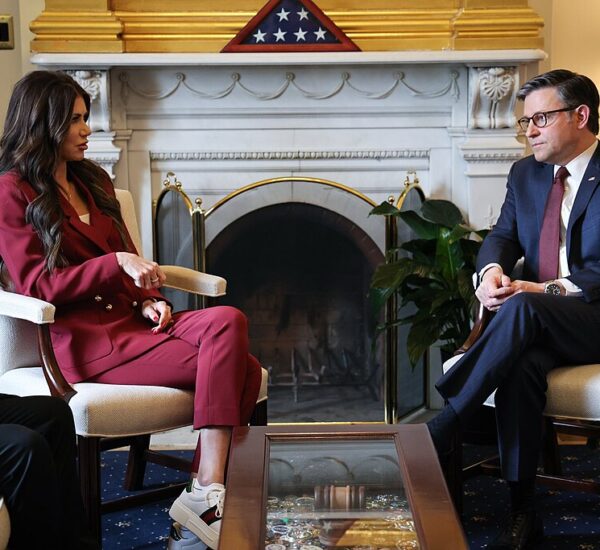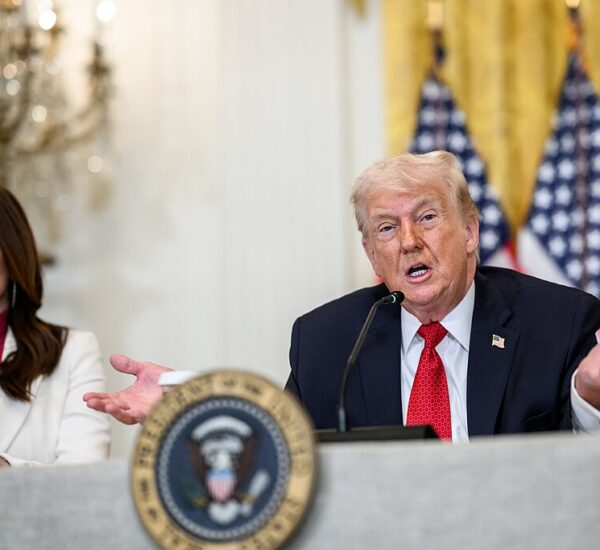GOP Flips On Trump’s Gaza Plan
Many Senate Republicans are expressing concern over President Trump’s proposal to take control of the Gaza Strip, an idea that has raised more questions than it has answers. The plan, which calls for the United States to manage Gaza and resettle nearly 2 million Palestinians elsewhere, has sparked resistance from various GOP lawmakers, who argue that it is unrealistic and misguided.
Some Republicans are, however, offering praise for Trump’s unconventional approach to a decades-long conflict that has defied traditional peace efforts. They appreciate his willingness to present “fresh ideas,” but caution that the proposal may be more about starting a conversation than a workable solution.
Republican senators, including Senator Rand Paul (R-Ky.), are firmly opposed to the idea of sending U.S. troops to Gaza. “It’s the last place on earth I’d send U.S. troops,” Paul remarked, rejecting the notion outright. Similarly, Senator Lindsey Graham (R-S.C.) voiced concerns that a U.S.-led operation to remove Palestinians from Gaza would cause significant problems, both in the region and politically back home. Graham, who is a close ally of Trump, advocated for a return to a more traditional strategy—one that focuses on destroying Hamas and allowing Arab nations to take the lead in the region.
Several senators expressed concern about the financial implications of such an intervention. Senator Josh Hawley (R-Mo.) emphasized his opposition to spending U.S. taxpayer money on Gaza, suggesting that the funds would be better spent on domestic issues like cleaning up polluted areas in the U.S. Rather than sending troops, many Republicans believe the U.S. should encourage Arab nations to take a more active role in the region, with support for a two-state solution that protects both Israeli and Palestinian interests.
The cost of rebuilding Gaza is another major point of contention among Senate Republicans. “Who’s responsibility is it to rebuild Gaza? I think the reaction of most Americans, me included, is ‘not ours,’” said one anonymous GOP senator. The idea of a U.S.-led rebuilding effort has many lawmakers uneasy, especially when they consider the immense financial burden it could place on American taxpayers. Some argue that the money would be better spent solving problems within the United States.
Others, like Senator John Cornyn (R-Texas), view Trump’s proposal as a potential “conversation starter,” hoping that it could lead to meaningful dialogue with Gulf states on how to secure the region without the influence of Iran or Hamas. Still, many Republicans are wary, with Senator Kevin Cramer (R-N.D.) calling the idea of resettling Gaza’s Palestinians in neighboring countries like Egypt and Jordan “impractical.”
While some of Trump’s closest supporters, like Senator Tommy Tuberville (R-Ala.), are more enthusiastic about the plan, suggesting that it could offer new opportunities in the Middle East, most Republicans are taking a cautious stance. The prevailing sentiment in the Senate seems to be that U.S. involvement in Gaza should be limited, with an emphasis on protecting American interests while supporting Israel’s security needs.
In short, while President Trump’s proposal may have garnered attention, it is unlikely to gain significant support among Senate Republicans, many of whom are focused on keeping America’s priorities at the forefront of foreign policy decisions.






